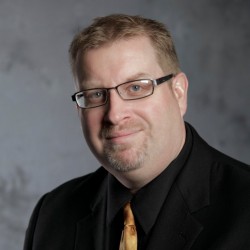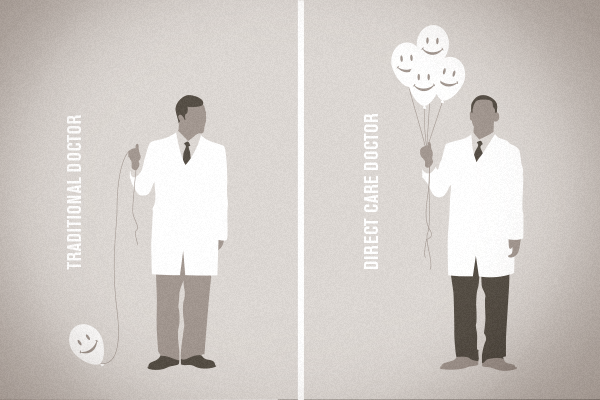Concierge Medicine Today has released new data summarizing concierge medicine physician salaries. The data is based on surveys, polling analysis and verbal responses received from concierge doctors across the U.S. from 2009-2012. We’ve included the highlights: Read more

Dave Chase Says DPC Is Insurers’ Health Plan Rorschach Test
Forbes contributor Dave Chase claims he powers/covers disruptive innovators reinventing healthcare. A disruptive innovator Dave’s been covering lately is direct primary care (DPC). In his recent article he claims that despite being included in Obamacare, DPC is surprisingly unknown by many health insurance executives. He refers to it as Concierge Medicine for the Masses, which is pretty spot on, comparing the $50-$80 average monthly cost to a gym membership, something Dr. Josh said recently.
Dave’s job is to explain things like DPC to insurance executives and has found it to be like a Rorschach test “reflecting whether that executive’s organization is playing to win or is back on their heels regarding the wrenching changes that are reshaping healthcare from the DIY Health Reform movement as well as the effects of Obamacare.”
LINKS: Rage Against The Healthcare Machine
 In case you needed any more reasons to get incensed with healthcare’s exorbitant costs, The New York Times has you covered. First, you’ll want to read their piece about how ridiculously overpriced it is to have a baby in this country (“American Way Of Birth, Costliest In The World” via The New York Times).
In case you needed any more reasons to get incensed with healthcare’s exorbitant costs, The New York Times has you covered. First, you’ll want to read their piece about how ridiculously overpriced it is to have a baby in this country (“American Way Of Birth, Costliest In The World” via The New York Times).
According to the article, “Women with insurance pay out of pocket an average of $3,400, according to a survey by Childbirth Connection, one of the groups behind the maternity costs report. Two decades ago, women typically paid nothing other than a small fee if they opted for a private hospital room or television.”
And that’s just the start. Read more
Dr. Josh Explains Membership Models versus Pay-For-Fee
Dr. Josh took a minute out of his day to answer a question he’s been getting asked a lot lately: Why does’t Atlas MD just use the fee-for-service model that’s been the staple in healthcare? Listen to Josh explain the Direct Care Membership Model and why it makes sense.
LINKS: Oh No, Everyone’s Worried About Doctor Shortages
First we came across an article in The Atlantic that discussed how doctor shortage could be the result of burnout caused by a lack of training in how to “deal with work pressures.” It was a stretch in our opinion, but we’re keeping an open mind. Unfortunately, we were not mentioned in the article as a force KEEPING doctors from retiring or getting out of practicing medicine altogether. Included within the article were some helpful links to leading publishers writing about doctor shortages. Thanks to the author Maureen Miller for directing us to this premium content.
Sunday Dialogue: Will Training More Doctors Improve Health Care? | The New York Times
One med student is one hundred percent behind insuring more Americans. Still, he asks, what’s the point if you can’t find a doctor. READ MORE
“How some states are addressing doctor shortages” | Yahoo News
An informative article comprised of blurbs about projected doctor requirements, current funding for programs, and other relevant info. It spans more than ten states including California, Delaware, Kansas, Kentucky, Ohio, The Dakotas and more. READ MORE
Physicians Explore Their Decision To Practice Concierge Medicine
Back in May, Forbes reported that there were now approximately 4,400 physicians who were practicing concierge-style medicine. They define the term as “a form of primary care characterized by a retainer-style fee in return for enhanced access to physician care.” In an MD News article, Jennifer Webster questions what makes physicians decide to become concierge doctors, pondering if the trade-offs are worth it — for instance, things like handing out one’s personal cell phone number.
And Dr. Josh Is Quoted On Forbes.com, Again
 One could say that Atlas MD is on fire, after recent media attention. But now Forbes contributor Dave Chase (left) has posted a new article on Forbes.com. He’s released an exclusive book excerpt from Engage! Transforming Healthcare Through Digital Patient Engagement. In his online article releasing an advanced read of a chapter he wrote, he’s included a quote from Dr. Josh:
One could say that Atlas MD is on fire, after recent media attention. But now Forbes contributor Dave Chase (left) has posted a new article on Forbes.com. He’s released an exclusive book excerpt from Engage! Transforming Healthcare Through Digital Patient Engagement. In his online article releasing an advanced read of a chapter he wrote, he’s included a quote from Dr. Josh:
“A good scalpel makes a better surgeon. Good communication makes a better doctor.” – Dr. Josh Umbehr
New Study Predicts that Majority Of Physician Practices Will Lose Money On Their EHR Systems
Dark Daily writer Patricia Kirk shares Michigan University research that suggests there are opportunities for physicians to make more money using EMR. However, a major factor that would theoretically help them make this proposed “money” includes using ONLY THE NEW EMR, not the new EMR in conjunction with pre-existing methods. Hmmm, so why would someone buy something to replace something, and then keep using the old thing? Oh right, the government paid them to buy it. We almost forgot.
MORE GREAT NEWS: Conservative Student Group Fights For Free Market In Medicine
StarTribune posted a timely article (Via Huffington Post) from Durham, North Carolina. They’re reporting on a “new conservatism” that’s taking root on some college campuses, fed in part by opposition to Obamacare. The groups are modeled after The Federalist Society for Law and Public Policy, which according to the post “has molded several generations of legal thinkers at the nation’s law schools.” We’re excited to hear that this new wave of conservative thinkers wants to take root in graduate schools of business, foreign policy, and most relevant to our fight, schools of medicine like Duke University.
Why Are Doctors Divorcing Their EMR?
 So what’s driving dissatisfaction with EMR? While surveys document dissatisfaction among physicians, experts advise on the costs of doing so in a new article from Medical Economics. The statistics are sobering and have been validated by multiple surveys.
So what’s driving dissatisfaction with EMR? While surveys document dissatisfaction among physicians, experts advise on the costs of doing so in a new article from Medical Economics. The statistics are sobering and have been validated by multiple surveys.
In the post, MGMA Healthcare Consulting Group’s Derek Kosiorek says, “This is an odd point in history, where we have asked physicians to take processes they have done their entire professional career and change them. We are taking the paper chart and every piece of information in that paper chart and we are shuffling it up like a deck of cards and putting it on a computer screen in different places.”
Nice job, Derek. We couldn’t have put it better ourselves. Check out the complete article below. The data’s eye-opening and writer Daniel R. Verdon includes sound advice for doctors looking to marry an EMR with their practice.
More Reading
“EHR divorce: What’s driving dissatisfaction?” | Medical Economics
Photo of Derek Kosiorek (@kosiorek) courtesy of Twitter
